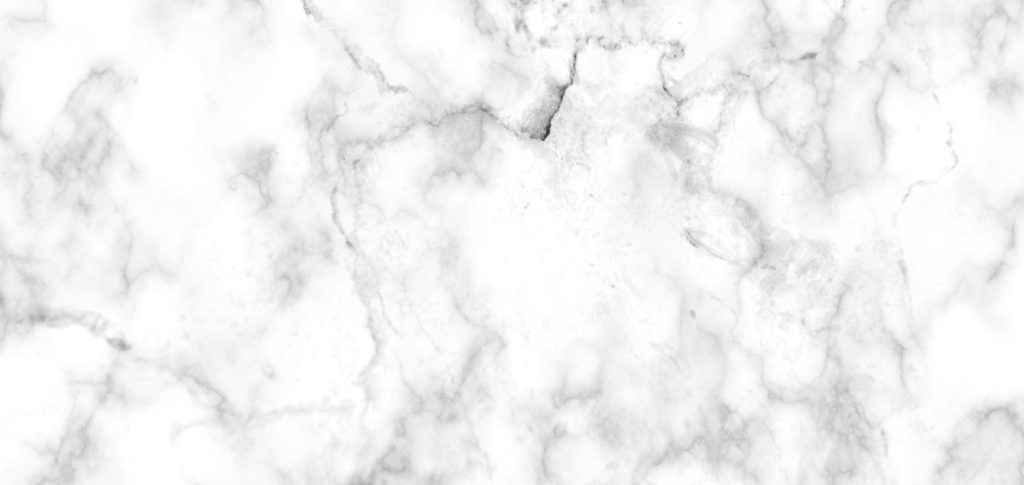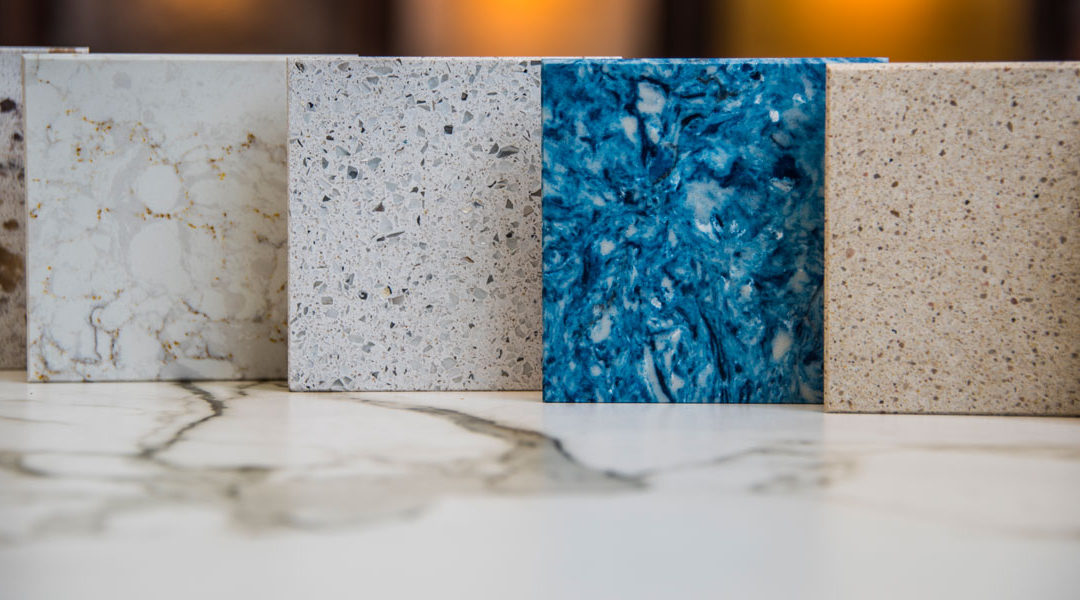There are all kinds of options available for your stone countertops. That’s why we’re on a mission to compare these options and, hopefully, help you decide which stone countertop best suits your needs. Our first comparison will pit the metamorphic miracle marble against forged in fire granite.
Download Our Natural Stone Care Guide

Marble
If you’ve ever seen the Taj Mahal or Michelangelo’s David, you know just how beautiful marble can be. Marble is metamorphic—the stone has gone through a natural heating and pressurizing process which recrystallizes the rock. This recrystallization gives marble its signature veins which are made of minerals. Differing rates and composition of the stone causes it to have different colors and veins. Because of this, no two cuts of marble are identical. We generally think of marble as white, but it can also be black, pink, red, green, and blue depending on where the marble came out of the ground.
Let’s talk about the qualities of marble that make it good for your countertops. First, it is an elegant stone and the variety of colors and styles elevate the whole room. In your kitchen, marble makes for great countertops. Marble, though, can be a more expensive commodity and not the most durable material—it is more susceptible to stains and scratches—because of this, marble requires more routine maintenance.

Granite
Granite is literally forged in fire. It’s an igneous rock, meaning it is the product of cooled and hardened magma or lava. It is usually made up of silica, mica, quartz, and feldspar. Because of the wild variation in the “production” process, granite has a mercurial property about it. Granite comes in a wide variety of colors depending on its mineral makeup; it is most readily available in pink, white, various shades of grey, and black. Geologically speaking, “black granite” is “gabbro” because its quartz content is less than 20% — although it still has a beauty and charm all its own. Like marble, no two cuts of granite are exactly the same.
When it comes to your countertops, granite is a great option. In part because of the wide variety of available colors. Unlike marble, which comes from very specific places on the planet, granite can be found anywhere in the Earth’s continental crust—so its supply is much greater. Granite is also very durable making it a lower-maintenance option. While granite is reasonably heat resistant, it is not invincible—it can still be scratched and stained.
If your countertops are natural stone, they will require maintenance. Homeowners would be well-advised to keep an eye on the condition of their counters. Small scratches and chips can be repaired with epoxy. Granite is a rather porous stone, so it needs to be sealed when it is installed. When the granite is sealed properly, water will bead on the surface. Marble is also porous, so it needs be sealed to protect it, as well. Even with this seal, though, any spills on marble counters should be cleaned immediately as liquids, especially acidic liquids like lemon juice and tomato sauce can permanently etch themselves into the marble.


